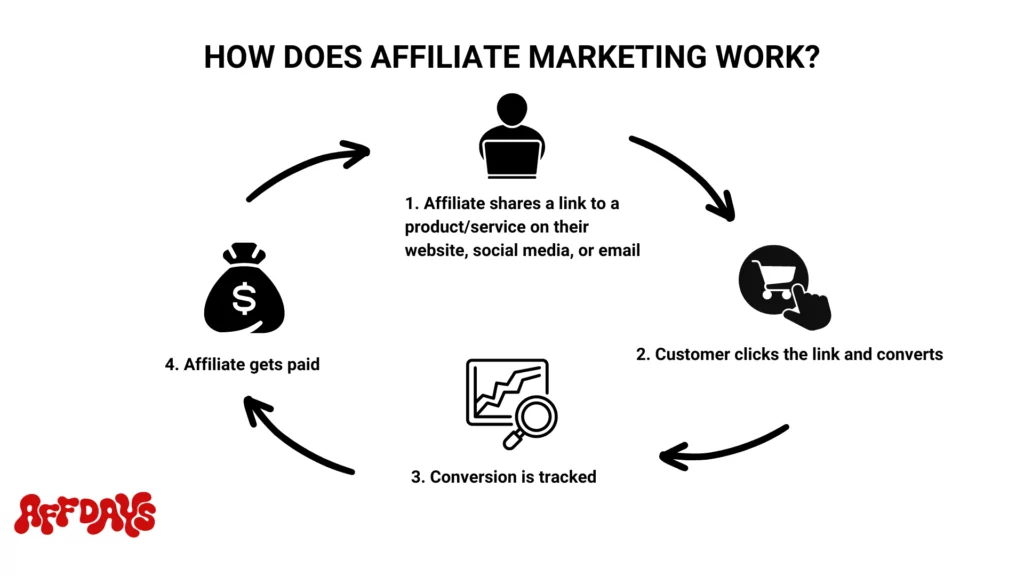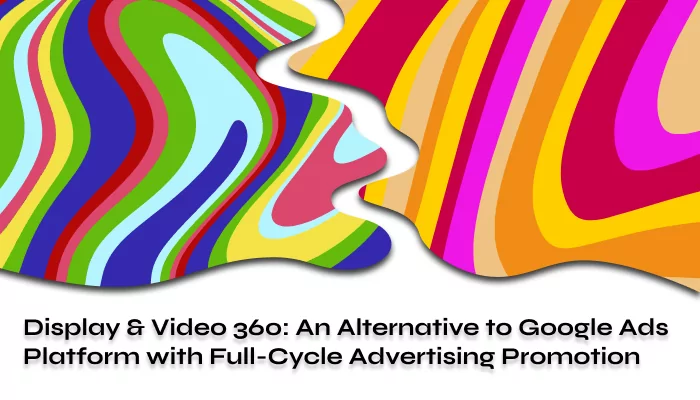Is affiliate marketing legit or scam? That’s the question many beginners ask.
Considering the United States has around 11,400 affiliate programs, it’s no wonder the global affiliate marketing industry is expected to reach $27 billion by 2027. The best part: affiliate marketers make $87.622 on average per year and can earn even more.
We gathered everything you need to know in this guide.
- What is Affiliate Marketing?
- Is Affiliate Marketing Legit?
- Affiliate Marketing is Not a Pyramid Scheme
- Not All Affiliate Programs Require Payment to Join
- Affiliate Marketing is Not a Get-Rich-Quick Scheme
- Common Affiliate Marketing Scams
- How to Spot and Avoid Affiliate Marketing Scams
- Red Flags to Look Out For
- Real-Life Examples of Affiliate Marketing Scams
- Successful Affiliate Marketing Strategies
- Choosing the Right Products and Services
- High-Quality Content Creation
- Utilizing Multiple Marketing Channels
- Transparency and Honesty
- Staying Up-to-Date with Promotions and Offers
- Communication with Merchants
- Using Business Tools for Efficiency
- Case Studies of Successful Affiliate Programs
- Examples of Merchants Benefiting from Affiliate Marketing
- Profiles of Successful Affiliates
- Conclusion
- FAQ
- Is affiliate marketing a scam?
- Is Affiliate Marketing a Pyramid?
- What Is Affiliate Fraud?
- How to Identify and Avoid Affiliate Marketing Scams?
- Is High Ticket Affiliate Marketing Legit?
- How to Start Affiliate Marketing?
What is Affiliate Marketing?
Affiliate marketing is a performance-based strategy where affiliates receive a commission for promoting the products or services of other companies using an affiliate link.
This helps businesses do the following:
- Increase sales;
- Attract traffic;
- Improve awareness;
- Connect with their subscribers.
For example, a dietary supplements company could partner with a fitness blogger on Instagram to promote its products to a fitness-oriented audience. The blogger shares a link to the company’s products in their stories and helps the company generate more sales. And, of course, the blogger gets rewarded.

Here are some typical affiliate incentives:
- Commissions with a certain percentage of each sale;
- Free products and samples;
- Exclusive rewards, and more.
Is Affiliate Marketing Legit?
Yes, affiliate marketing is real and it can be very profitable. Many global corporations like Amazon and AliExpress have affiliate programs that help content creators, publishers, and bloggers earn commissions on sales made by their followers. However, many people still mistake affiliate marketing for illegal schemes. We gathered the most common misconceptions about this way of making money.
Affiliate Marketing is Not a Pyramid Scheme
Some people consider affiliate marketing and financial pyramids to be the same thing. That’s not right.
An affiliate program is free to join, pays a certain commission for a completed action, and mostly focuses on selling products and services. Pyramid schemes are a complete counterpart: they charge an entry fee and focus on earning through referred users. Here’s a detailed comparison.
| Feature | Affiliate Marketing | Pyramid Schemes |
| Primary focus | Selling products and services | Recruiting new members |
| Revenue source | % from actual sales | % from fees paid by recruited members |
| Cost to join | Free | Not free |
| Earning method | Based on performance: sales, sign-ups, etc. | Fees from recruited members |
| Legal status | Legal and widely accepted | Illegal and unethical |
| Risk level | Low risks: you don’t lose anything | High risks: it might not pay off |
Not All Affiliate Programs Require Payment to Join
Real affiliate programs are free and don’t charge anything to join. You are an essential part of their marketing strategy, so they are happy to have you on board to help them increase sales. Pay-to-join programs are scams in 99% of cases.
An affiliate program is fake if it:
- Is not listed on our best affiliate programs & networks for 2024.
- Requires payment for you to join.
- Promises and guarantees excessive profits.
- Has a complicated payment structure.
- Lacks reviews online.
Remember to always complete a quick check on websites like Trustpilot, Reddit, and Quora to see what other people think about it. This might help you easily detect a scam.
Affiliate Marketing is Not a Get-Rich-Quick Scheme
If someone guarantees you a fast and immediate profit, then they’re likely trying to scam you. Real affiliate marketing requires extensive effort, skills in product promotion, and a loyal audience that will buy from your links. It’s a long-term strategy that doesn’t guarantee income.
Common Affiliate Marketing Scams
If you intend to work with legit affiliate marketing programs, you must know the most common schemes to avoid losing your money. We gathered the largest fraudulent schemes targeting affiliates:
- Pyramid schemes: they prioritize recruiting more affiliates over actual sales, generating revenue from entry fees. A legitimate business prioritizes sales and is free to join;
- Fake products: while there are shady niches like adult or iGaming that actually work, there also are companies that promote fake and unrealistic goods. The latter can significantly damage your reputation and even lead to lawsuits;
- Get-rich-quick schemes: they promise to bring you a lot of money with almost no effort. In reality, affiliate marketing is a long-term strategy that requires effort and creativity;
- Pay-to-join schemes: they charge a fee for you to join. Any reputable program is free to join and may even have some initial audience requirements;
- Fake courses: this involves promoting courses and gurus that don’t teach any real-life knowledge. Refunds are usually impossible, and the so-called gurus have no proof that their methods work.
There are certain red flags that you should look out for when choosing an affiliate program. We’ll describe them in the next section.
How to Spot and Avoid Affiliate Marketing Scams
Almost all illegal practices have similar features. That’s why knowing the typical red flags makes it easy to identify and avoid them. We gathered the most popular issues based on experience and reports from other users.
Red Flags to Look Out For
- Guaranteed high income: affiliate marketing does not guarantee income;
- Minimum effort: it requires great effort, a well-made strategy, and an audience to succeed;
- Unrealistic claims: if the company promises instant solutions or miraculous results, it’s fake;
- Limited information: legitimate companies provide extensive information and user reviews;
- Fees to join: you shouldn’t pay anything to join a real affiliate program;
- Limited payout information: there is no clear info on payouts, their frequency, and used systems.
Real-Life Examples of Affiliate Marketing Scams
The Internet is full of case studies covering frauds and their schemes:
- My Online Business Education (MOBE): this was a get-rich-scheme that promised to teach people how to make a living on affiliate marketing. They charged thousands of dollars for different membership levels, ending up scamming people for $125 million. Fortunately, the Federal Trade Commission closed down this company and shared a detailed case study.
- Empower Network: this was a pyramid scheme that charged $25 from each member to get a copied website on Empower Network’s domain. The goal was to get an unbeatable search ranking success by getting more people into the scheme. However, the domain faced penalties and soon declared bankruptcy.
- StealthGenie: this was a spyware application that promised high payments and low competition. Such software violates federal wiretap laws, and promoting it can lead to severe consequences. The FBI shut down the app’s website, arrested its CEO, and charged a $500,000 fine.
As you can see, it’s not only about money. Working with scammers can also seriously damage your reputation. That’s why you must avoid them at all costs and look out for the abovementioned red flags.
We also recommend you to check out the 5 most common mistakes beginners make in affiliate marketing. This will help you prevent losing money and reputation on rookie mistakes and unreliable partners.
Successful Affiliate Marketing Strategies
If you start working with a reliable affiliate program, you’ll have to follow legit affiliate marketing strategies for better results. That’s why we gathered a step-by-step guide with the best approaches.
Choosing the Right Products and Services
The first step is to decide what you will promote. It’s your direct key to success, so you’ll have to consider the following elements:
- Niche: align the promotion with your website’s or account’s topics. It wouldn’t make sense if you promoted tobacco products in a fitness blog;
- Quality: avoid working with shady offers. Your reputation is at stake, so it’s necessary to make sure your followers are satisfied with the quality;
- Demand: research demand using Google Trends or polls on social media. Many Instagram influencers conduct polls in their stories before making a promotion.
You might want to check out different affiliate programs to find a relevant offer. While you can partner with agencies, many companies and brands often provide their offers without mediators. For example, there is an official affiliate program from Adidas.
High-Quality Content Creation
The next step is to create high-quality content that promotes the offer. It’s essential that the promotional materials align with your website’s or account’s format. For example, if you record videos with you speaking, it would make sense to maintain a similar manner.
Here are some ideas:
- Use different formats: combine blog posts, social media publications, stories, and other formats. This will ensure cross-channel engagement of all your followers;
- Educational materials: using tutorials, how-to guides, and short videos is an organic way to promote your offer. It’s an easy way to add more brand mentions and links too;
- Reviews and comparisons: compare different items of the same category and share your opinion with your followers. It’s essential to be honest to maintain the trust of your followers;
- Storytelling: incorporating storytelling is the best way to create an emotional connection with your viewers. For example, if you’re a fitness blogger, you can tell your followers how you went to the gym and integrate a mention of your new shoes provided by company X;
- High-quality visuals: photos and videos are a great way to make a promotion and share its benefits. Combining them with a powerful text will help you create an image in the user’s head, prompting them to want to buy the item.
Sometimes companies will provide you with pre-made ads and integrations. You can use them too if you’re confident that your followers will buy it.
Utilizing Multiple Marketing Channels
Focusing on a single channel cuts your reach. You require maximum coverage to ensure more users see your promotion and complete an action.
Here’s what you can do:
- Use social media: share your promotion on Instagram, Facebook, Twitter, and all other platforms you use to cover all your subscribers;
- Use content marketing: make SEO-optimized blog posts on your website, publish demonstrations on YouTube, and mention the promotion in podcasts on relevant topics;
- Use paid advertising: some marketers use Google Ads and targeted social media ads to cover customers with specific interests and demographics;
- Use forums: users often ask questions on Reddit and Quora. If your offer can help them solve their problems, you can integrate a link in your reply.
Previously, we covered the best places to promote affiliate links. Make sure to check them out to gain maximum coverage for your promotions. Also, remember to avoid spamming: your links must be helpful.
Transparency and Honesty
It’s necessary to maintain trust with your subscribers. This includes several key elements:
- Affiliate disclosure: the Federal Trade Commission obliges American citizens to indicate partnerships and promotions. The same requirements are stated by the European Commission for Europeans. You must always stay a reliable influencer for your followers;
- Accurate descriptions: avoid exaggerating the benefits and capabilities of the promoted item. All descriptions and claims should be precise;
- Feedback and reviews: avoid sharing biased reviews. It’s better to share both positive and negative aspects to remain a trustworthy influencer for your followers.
Most countries also require you to create a privacy policy when processing user data. This is mostly relevant when you ask them to fill out forms or buy from your website. If that’s your case, you can use a free privacy policy generator to save time and money.
Staying Up-to-Date with Promotions and Offers
Your niche isn’t the only factor to consider when making a promotion. Don’t forget about other factors like the season, current trends, etc. For instance, you wouldn’t sell skiing equipment in summer. There simply wouldn’t be any demand.
Also, don’t forget to remove links to outdated promotions. Influencers often use resources like Linktree to keep their promotions available for a while in their bio. It’s necessary to keep only up-to-date offers to avoid confusion and ensure your followers have a good experience.
Communication with Merchants
Effective communication with merchants is a great way to get exclusive offers and increased rewards. That’s why it’s necessary to establish a friendly relationship with your merchants to ensure the collaboration works out perfectly for both sides.
Here are some examples of affiliate merchants:
- Amazon Associates;
- eBay Partner Network;
- Rakuten Advertising;
- Fiverr, and others.
Remember to always maintain professionalism in your communications. Be polite, timely, and respectful. This will lead to more trust and better collaboration.
Using Business Tools for Efficiency
All affiliate marketers use certain tools to track the performance of their campaigns:
- Google Analytics to track website traffic and user behavior;
- Buffer to schedule publications across different channels;
- Canva to create user-friendly graphic designs;
- Trello to organize tasks and promotions;
- Mailchimp to create and track email campaigns;
- Unbounce to optimize landing pages.
There isn’t a one-size-fits-all solution. Every professional uses a unique tech stack, so you’ll have to find the tools that suit your needs best. However, these are good examples to start with.
Case Studies of Successful Affiliate Programs
If you’re still wondering whether there are any legit affiliate marketing programs, we gathered several case studies to show you the possibilities of this industry.
Examples of Merchants Benefiting from Affiliate Marketing
- Wirecutter is the world’s largest affiliate marketing success story. It focuses on sharing in-depth reviews with real tests, and each listing includes an affiliate link. The project’s success led to the creation of the term “Wirecutter effect”. It also attracted The New York Times, which purchased the web page for $30 million in 2016. Wirecutter generated $20 million in 2018 and had over 12 million organic search clicks in May 2022, so it’s definite proof of affiliate marketing’s profitability.
- ScrapingBee, a web scraping API service, used affiliate marketing to recruit partners who would promote their SaaS app. The team scraped a list of similar software, found all companies with affiliate programs, and analyzed their backlink placement. Then they reached out to all the blogs with backlinks, offering them to become ScrapingBee’s affiliates with a 25% lifetime reward. The team received a 50% response rate and currently receive 10% of their current customers.
- Tomahawk Shades, an eyewear brand, partnered with the AWIN affiliate network and recruited multiple publishers. They used an affiliate campaign from August 13 to August 25 in 2020 to test this approach. It attracted 730 new users, made 28 transactions, and generated $1,068 in revenue. This was 27.71% of the company’s total income during the period.
- Currys, a leading UK retailer of technology products, collaborated with BrandSwap and Awin to introduce a new post-purchase rewards program ahead of Black Friday. The goal was to create a new revenue stream by offering non-endemic advertiser rewards, like meal kit subscriptions for appliance purchasers, on the order confirmation page. This integration into Currys’ existing retail strategy led to an average CPM of $77, a peak of $89, and a CTR of 10%. These results exceed industry benchmarks.
Profiles of Successful Affiliates
- Pat Flynn is a successful affiliate marketer and entrepreneur with 16+ years of experience in the industry. He shares tips and tricks on earning money with marketing and other approaches on his YouTube channel;
- Geno Prussakov founded AM Navigator and is an affiliate marketer who worked with many companies like Forbes, Nokia, Warner Music, Skype, and others. He and his team share many insights on their company’s blog;
- Matt Giovanisci is a marketing jack-of-all-trades who knows affiliate marketing inside out. He is also the founder of Money Lab, a site where he shares all his tips and insights. Matt’s content is useful for both beginners and professionals.
Conclusion
Affiliate marketing is a real way to make money. We covered examples of the most popular fraudulent schemes, frequent red flags, and strategies used by legal companies. Always remember to research your affiliate partners thoroughly before collaboration.
FAQ
Is affiliate marketing a scam?
No, it’s a real way to make an income with your blog or social media. Avoid any companies that require an upfront fee because these aren’t trustworthy. You don’t have to pay anything to join a real program.
Is Affiliate Marketing a Pyramid?
No, it’s not. Affiliate marketing focuses on the promotion and sale of products and services, while a pyramid profits from attracting more users into its scheme.
What Is Affiliate Fraud?
It’s when affiliates use deceptive practices to generate revenue from affiliate marketing offers through illegal means. This includes using stolen credit card information to create fake sales, generating artificial clicks on affiliate links, or enrolling nonexistent affiliates.
How to Identify and Avoid Affiliate Marketing Scams?
Avoid programs that require an upfront fee and lack reviews online. Also, if the program doesn’t provide clear and detailed information about the potential partnership, it might be fake.
Is High Ticket Affiliate Marketing Legit?
Yes, it’s a real way to earn money. Unlike a typical get-rich-quick scheme, this option doesn’t promise instant results. It requires a detailed strategy, effort, and careful planning to succeed.
How to Start Affiliate Marketing?
Find an affiliate program with relevant offers in your industry. Then create high-quality promotions on your site or social media with integrated links. If you already have many loyal followers, the process will be much easier than starting from scratch.













